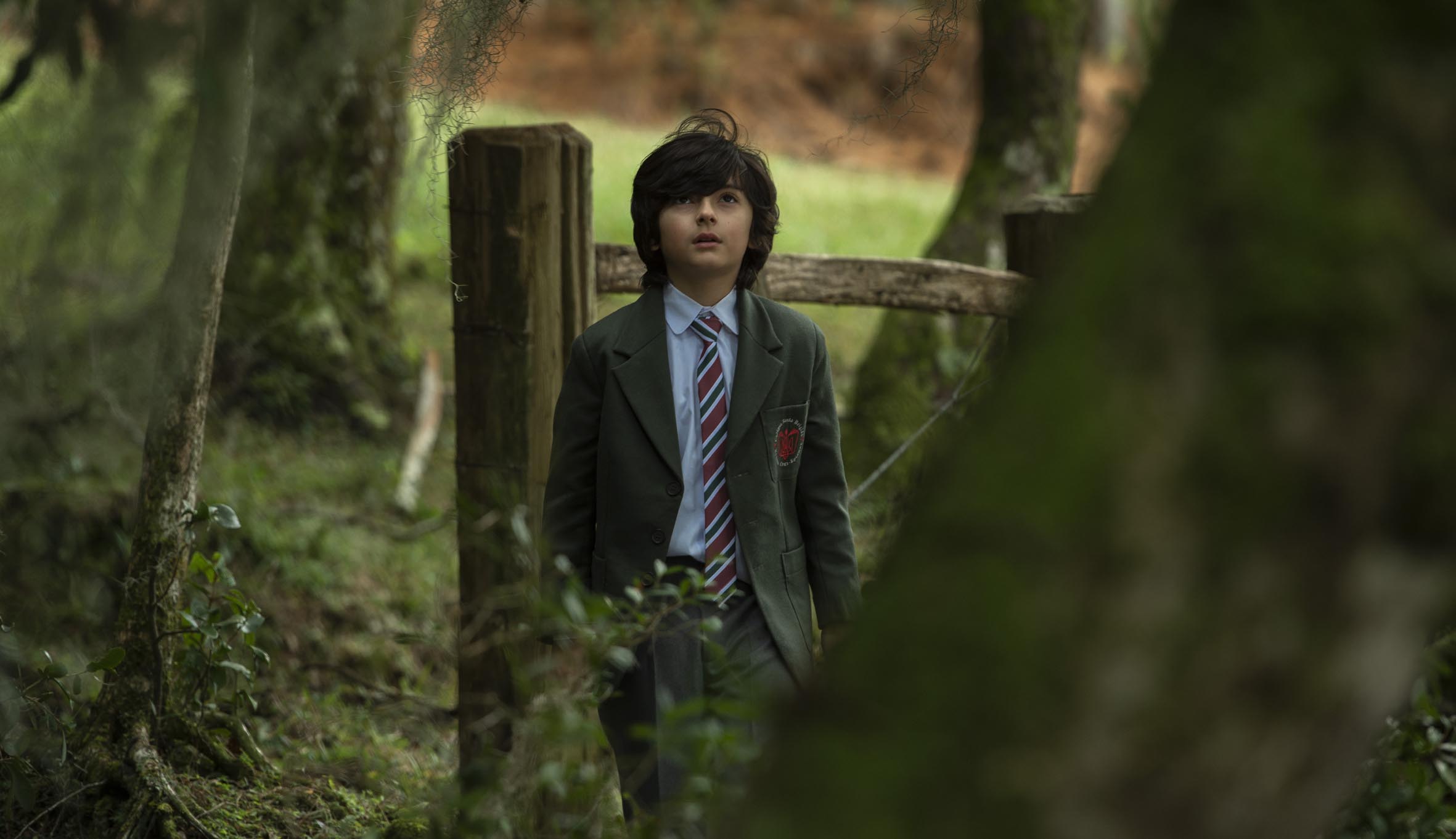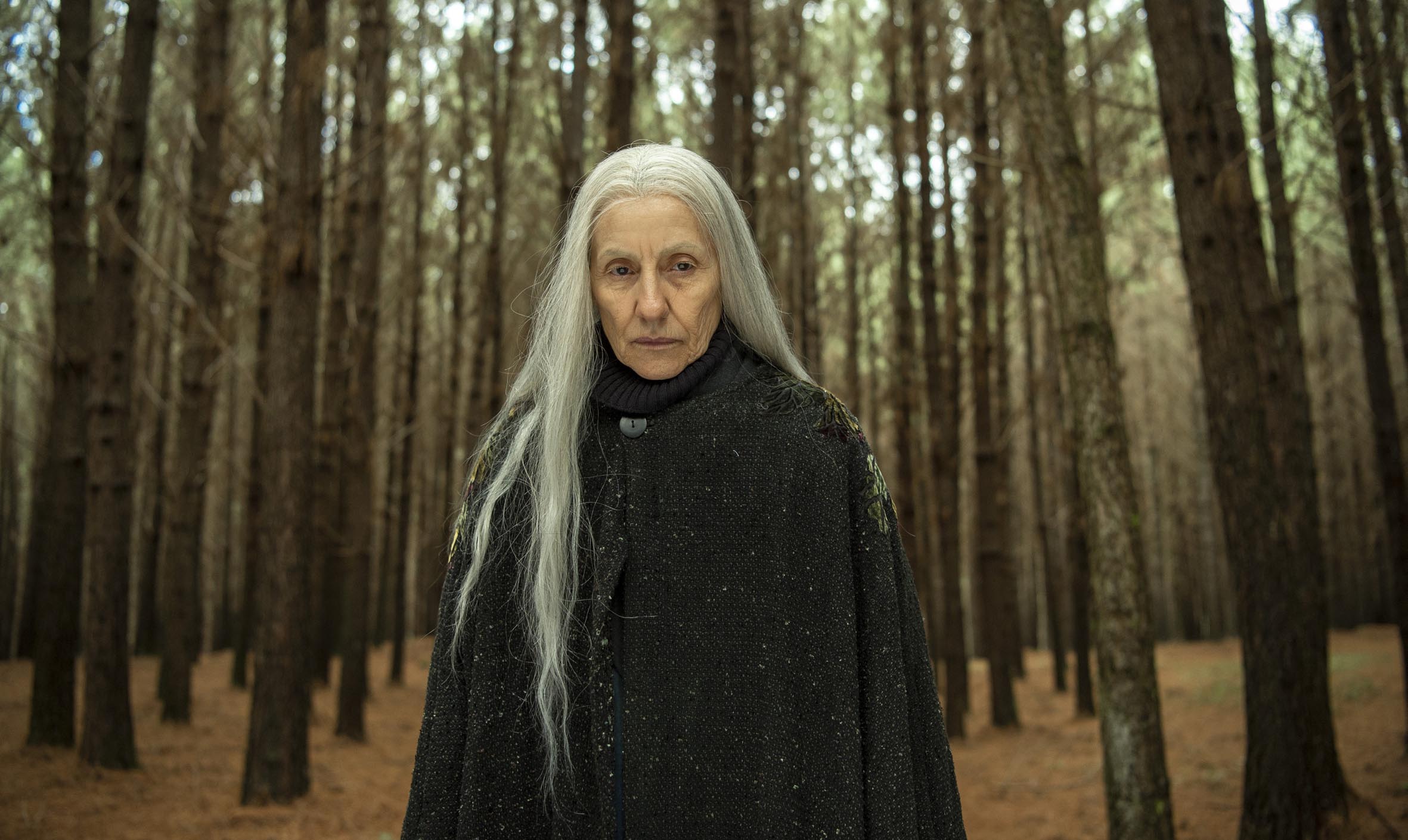Carlos Manga Jr, Maria Ribeiro to Talk on New Globo Series Unsoul’
By Emiliano Granada
LOS ANGELES (Variety.com) – BERLIN — Giant Brazilian TV network Globo has seen its bet on shorter-format series vindicated by the selection of two of their new series at this year’s Berlinale Series Market.
Distancing itself from the tradition telenovela narrative, one of ’s Berlinale players is ‘Unsoul’ a supernatural drama, rare in its nature as it allows its director, Carlos Manga Jr, to explore the narrative beats of the horror genre without loosing a certain melodrama flare so rooted in Latin American tradition.
The series follows the arrival of Giovana (Maria Ribeiro) and her two daughters at Brigida, a town of descendants of a large wave of Ukrainian immigration. She has decided to settle there and rebuild her life after the sudden suicide of her husband, who had deep family connections to the town. As Ivana Kupala, a folkloric Slavic celebration approaches, she is confronted by mysteries surrounding a crime of the past and darks rituals concerning the transmigration of the soul start.
Drenched in folklore mysticism, the family drama highlights Globo’s production values, and the direction of the seasoned Carlos Manga Jr.
Written by Ana Paula Maia, the 10-hour series premiered at Berlin alongside “Where My Heart Is.” Variety talked with Manga Jr. and Maria Ribeiro as “Unsoul” premiered at the Berlinale Series Market.
It’s rare to see a series of these production values that plays with genre. In fact it’s pretty rare to find horror on TV. Genres also evolved over the last few years. What’s your approach to a new post-horror scene?
Like you’ve said, horror is in a different place right now, the era of post horror, and the different sub-genres that come with it. In this case, “Unsoul” is a subgenre, we use to say that instead of supernatural thriller, it’s a supernatural drama. What makes “Unsoul” very peculiar is that it’s a humane drama, but occurs in a supernatural ambience. I used to say during the shoot that it’s a story about the human capacity to not accept loss.
In this new era of horror, “Unsoul” is about a village that is not Ukraine, is not Brazil, but a mix. This people live in a timeless village, Adding those aspects – static time, the location – lead me to cinematographic language of the show. I worked with references like Bela Tarr’s “The Turin Horse,” Kieslovski’s “You Shall Not Kill,” even a bit of Tarkosvsky, this East European sauce mixed with a contemporary modern rhythm.
Post horror cannot rely on the same mannerisms as before. Given that, there are many sequences that rely on sound design in a very tonal way.
Agreed. I had to mix my references and enroll Eastern European legends, their dynamics, rhythm, atmosphere and also those of a new Brazil, translate those references in a very contemporary way. Same for the sound because the language has a very specific, very sensorial mood, where you don’t see but feel. No one is crying, no one is crossing the wall, but you feel an unspoken anguish. Same with the sound: That old fashion division between music and sound is blurred. And even if you cannot pinpoint it, something is not right – that applies to both sound and image. And above all else, the melancholy, there is a very melancholic feeling because these people are lost, even if it is in the subtext, that translates to the sound.
How did this approach applied when working with the actors?
Manga: It’s the same with the cinematographic language, image, sound, music, the same for the actors. The whole preparation with the cast was very hard for everyone. We are Brazilians, we are use to act from inside to the outside, not from outside to inside. In Brigida. everyone is not entirely Brazilian, except for Maria’s character. For the witch, who appears later the key thing was to make her work into the shadows and silence, the silence was a vital. Is like that when you look at a Robert Capa picture, it’s all there in the image. Everything counts, it’s all together.
Ribeiro: For me it was very hard, because we have a tradition of acting, where we think we are doing well when you can recognize me and the character. Carlos asked me to slow down, to forget soap operas, forget what we had previously done on TV. Ana Paula Maia comes from literature and was was very precise, like Manga. He knew exactly what he wanted from us: We are very much directed in the show. Which for me was so beautiful: In Brazil we are used to a TV or movies showing the typical Brazil, the poverty and the violence, emulating “City of God,” because this is the Brazil that festivals want to see. Then Manga came and asked us to carry these archetypes. There’s this film, “Limite” by Mario Peixoto. There it’s so clear that we talk too much. I was afraid: Manga calmed me down and told me the silence would do the talking.


